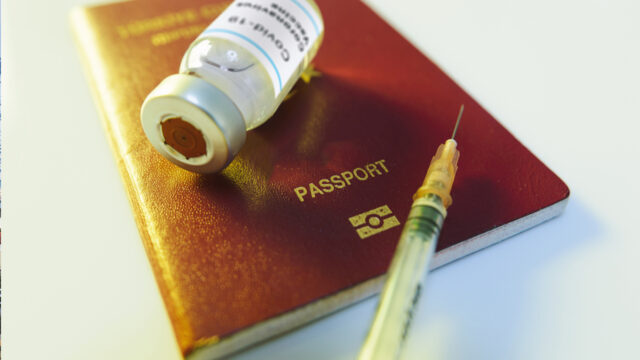The European Union (EU) introduced a digital COVID certificate called the travel pass which came into effect from 1 July 2021. The travel pass enables a relaxation in travel restrictions and has created ripples for the intricacies. The EU Green Pass exempts people from measures like quarantine if they have received any of the four vaccines – Astra Zeneca, Moderna, Pfizer and Johnson&Johnson. There has been much upheaval about the Indian vaccines – Covishield and Covaxin not being included in the exemption list.
Covid 19 Vaccines and the Dynamics
The pandemic that began as a medical urgency has gradually led to challenges in many spheres of life. One look at the international situation shows the complexities that it has led to. From economic strains to politically charged exchanges, the countries all over the world have witnessed major changes in the dynamics. One industry that experienced major setback in these current times is the travel sector.
Over the last year, many countries enforced restrictions on travel, introduced systems which divided others into categories depending on the number of cases, put quarantine procedures in place. Recently, there have been some changes in the scenario. After the EU announced the travel pass and its functioning, there have been concerns about the exclusion of the Indian vaccines. The Covishield manufactured by the Serum Institute of India is its version of the Astra Zeneca vaccine. The Astra Zeneca is approved by the European Medicines Agency but the Indian version is out of the list.
The Digital Green Pass as described by the President of the European Commission, Ursula von Der Leyen provides the proof of vaccination, results of tests who did not receive the vaccine and mentions the information on COVID 19 recovery. It enables people with the pass to travel freely across 27 member countries who are a part of the agreement. In addition to that, Switzerland, Iceland, Norway and Lichtenstein are also included in the deal.
There are some British travellers who received the Indian dose of the Astra Zeneca and were denied entry into Europe. BBC reported that almost 5 million Britons received the Indian made jab and were now at risk of not being allowed entry into many European countries.
Adar Poonawalla, the CEO of the Serum Institute of India based out of Pune expressed his vexation about the situation and stated that he was trying to resolve the issue by getting in touch with the “regulators” as well as at the “diplomatic level” with the countries. The rejection of both the indigenous vaccines manufactured in India has led to concerns for Indian businessmen, students as well as frequent travellers.
There are 10 countries who have approved the Covishield – Austria, Estonia, Ireland, Slovenia, Germany, Greece, Spain, Iceland and Switzerland. There are strict restrictions on travel between India and other European countries as of now.
The major concern is the reason behind not approving the vaccine despite its acceptance by the World Health Organisation in emergency scenarios. India took a bold step and responded by informing the EU member states of its intentions to reciprocate the policy.
India’s External Affairs Minister S.Jaishankar raised the issue of the green pass with Josep Borell Fontelles, High Representative for the EU. After the scheduled G20 ministerial meetings that touched upon the problems arising due to the pandemic, he discussed vaccine production and access and also spoke of the need to authorise the Covishield vaccine.
It is well known that the science can not be disassociated from politics. On one hand, there is a cry for collaborative measures and cooperation to fight the pandemic together. On the other, there has been an evident rise in discrepancies.
The disapproval of the Indian vaccines has raised questions about many aspects of the pharmaceutical sector. Are there any specific reasons to reject the Indian vaccines even though the Covishield is based on the parameters set by the Oxford University developed Astra Zeneca. What is the intention behind the division of opinion with respect to the Indian vaccines?
The exemption from expensive quarantine and travel restrictions can be a big boon for the students as well as business travellers. A large population from India travels to Europe during the summers for personal as well as professional reasons. Moreover, this wreaks of deep political undercurrents. The real reasons are yet to be disclosed but these decisions have voices being raised in the name of discrimination too. In the midst of the restlessness, there is hope for the issue to be resolved soon.









